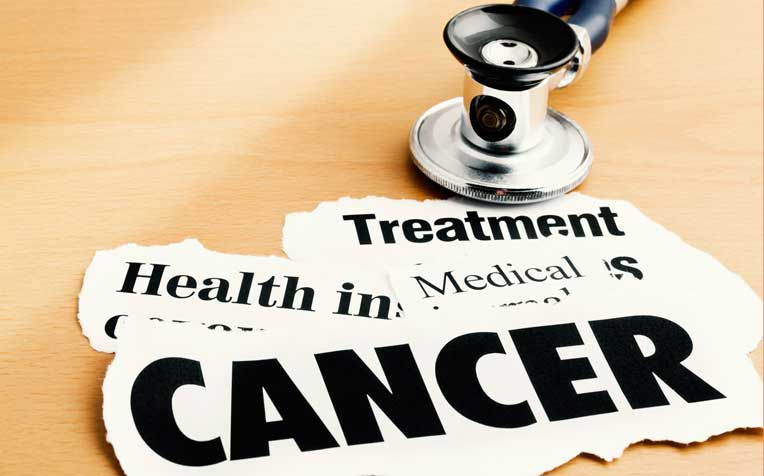
Cancer if detected at an early stage, may be easier to treat or cure.
Cancer: What is it?
Cancer is a disease where abnormal cells divide without control, and usually form a lump (called a tumour) as their numbers increase. Cancer cells can invade nearby tissues and can spread through the bloodstream and lymphatic systems to other parts of the body.
Cancer cases on the rise in Singapore
According to the Singapore Cancer Society, during the period from 2017 to 2021, an average of 46 people are diagnosed with cancer daily, with 16 people dying from it every day.
Although 1 in 4 people may develop cancer in their lifetime*, the good news is, with early detection and treatment, it is possible to have better clinical / management outcomes.
Top cancers affecting Singaporean men and women (from 2017 to 2021)
Men | No. of cases | Women | No. of cases |
|---|---|---|---|
Prostate | 6,912 | Breast | 12,735 |
Colon & Rectum | 6,697 | Colorectal & Rectum | 5,542 |
Lung | 5,567 | Lung | 3,388 |
Lymphoid Neoplasms | 2,986 | Corpus Uteri (Uterus) | 3,133 |
Liver | 2,984 | Lymphoid Neoplasms | 2,221 |
Non-Melanoma Skin | 2,136 | Ovary & Fallopian Tube | 1,855 |
Kidney | 1,734 | Non-Melanoma Skin | 1,713 |
Stomach | 1,684 | Thyroid | 1,666 |
Myeloid Neoplasms | 1,430 | Pancreas | 1,187 |
Pancreas | 1,417 | Stomach | 1,111 |
| | Cervix Uteri | 1,106 |
* Source: Singapore Cancer Registry Annual Report 2021
Common cancers by gender
Lung cancer (24.8% of cancer deaths in males) and breast cancer (17.2% of cancer deaths in females) had the highest mortality rates in males and females respectively from 2017 to 2021.
The three most frequent incident cancers (2017 to 2021) are:
Males - prostate (16.8% of all cancers diagnosed in males), colorectal (16.3%), lung (13.5%)
Females - breast (29.7% of all cancers diagnosed in females), colorectal (12.9%), lung (7.9%)
During this 5-year period (from 2017 to 2021), 41,126 males and 42,876 females were diagnosed with cancer, with 16,103 males and 13,419 females dying from it.
Some cancer risk factors are within your control while some are not
The majority of cancer cases are sporadic, i.e. the disease is not inherited. By pure chance, many cases of "common" cancers such as breast, colon and lung cancers can appear to run in a family. Your personal risk depends on factors such as your age, family history of cancer and your tendency to inherit cancer genes. These are beyond your control. Other risk factors that are within our control are not genetic. These include our lifestyle, diet, smoking and environmental exposure. We must work to reduce or prevent these risk factors.
Prevention and early detection of cancer
Although great advances have been made in the treatment of cancer, the impact on survival rates has been incremental rather than dramatic. Many cancer patients are also diagnosed relatively late, at which stage their treatment options are often severely limited. Prevention and early detection of cancer are therefore key strategies in cancer control efforts. You must be responsible for your own health – only you hold the key to your well-being.
Ref: H24
Check out our comprehensive list of cancer articles:
Rise of Colorectal Cancer in Young Adults
Breast Cancer: What Puts You at Risk
Breast Cancer Screening: Your Best Protection
Tips to Keep Your Breasts Healthy
Prostate Cancer: All You Need to Know
Nose Cancer: Signs, Diagnosis and Treatment
Liver Cancer: Causes, Symptoms, Treatment
Lymphoma Cancer: First Signs, Types, Treatment
Endometrial Cancer: Risk Factors, Symptoms, Treatment and Prevention
Ovarian Cancer: Causes, Symptoms, Treatment and Prevention
Cervical Cancer: Symptoms, Screening and How to Prevent
Stomach Cancer (Gastric Cancer): Symptoms and Treatment
Thyroid Cancer: Types, Symptoms and Treatment
Multiple Myeloma (Bone Marrow Cancer): Causes, Symptoms, Treatment
Skin Cancer: Types, Symptoms, Treatment and Prevention
Cancer Diet: Top Foods to Eat and Avoid When Undergoing Treatment
Contributed by


















 Get it on Google Play
Get it on Google Play